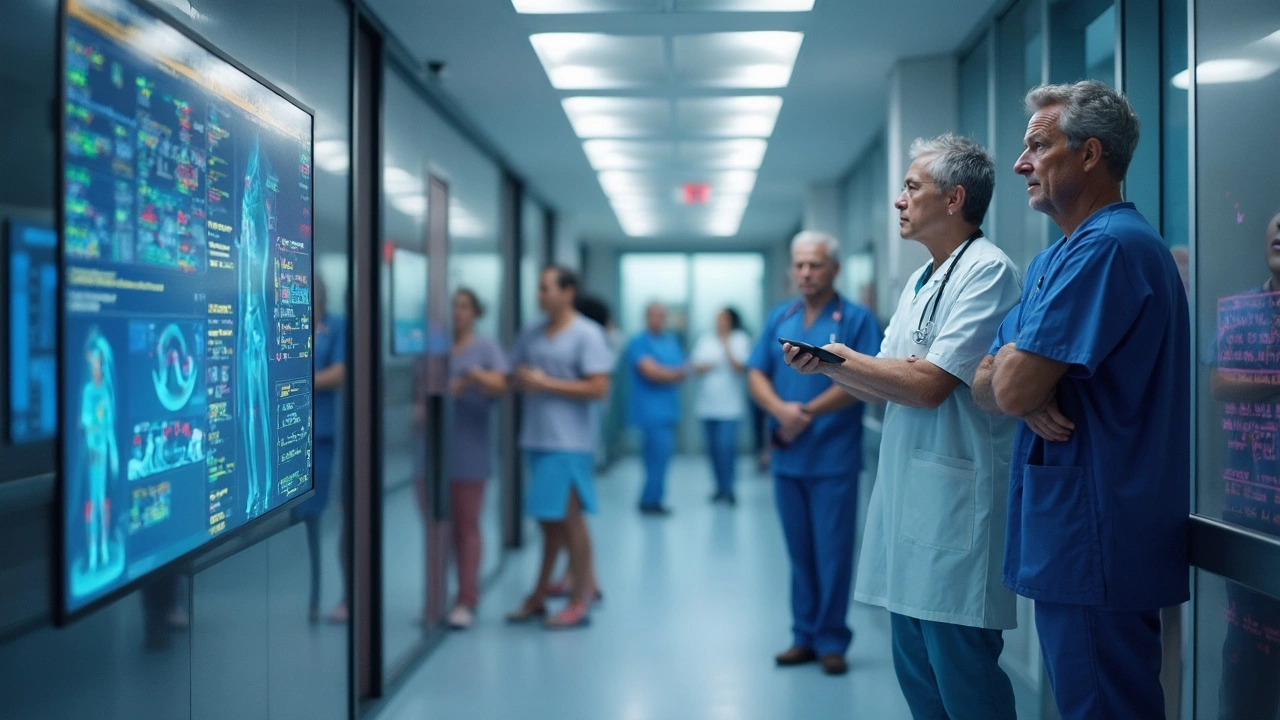Future Healthcare: How Tech Will Change Medicine
AI already reads scans as well as trained radiologists in many cases, and that fact alone is reshaping care. Faster detection means earlier treatment and fewer surprises. This page explains the real tech changes coming to healthcare and what they mean for you.
AI, Imaging, and Faster Diagnosis
AI learns patterns in images, labs, and notes that humans can miss. In practical terms, that speeds up diagnoses for cancer, heart disease, and eye problems. Doctors will use AI as a second opinion—confirming results, suggesting next tests, and pointing out odd findings. For patients that means fewer delays, shorter waiting lists, and more targeted referrals to specialists.
AI won’t replace doctors. It helps them focus on decisions that need human judgment. When a machine flags a risky trend, clinicians check context and talk to the patient. That teamwork reduces mistakes while keeping a human in charge.
Care at Home: Wearables and Remote Monitoring
Wearables and home sensors move routine care out of hospitals. Smartwatches, continuous glucose monitors, and home ECGs stream data to care teams in real time. If readings drift, your clinician gets an alert and can act before a crisis starts. That prevents readmissions and keeps recovery on track.
Telemedicine handles checkups, simple diagnoses, and follow-ups. Video visits cut travel time and make care easier for people with mobility limits. Remote care works best when devices are accurate and data flows securely to the care team.
Robots and automation are part of this shift too. Surgical robots improve precision and lower complications for many procedures. Rehab robots help patients relearn movement faster and with consistent support.
Personalized medicine is also growing. Genetic tests plus AI help match drugs and doses to your biology. That reduces side effects and raises the chance a treatment will work right away. Pharmacies and clinics must then coordinate data to avoid mistakes and dangerous interactions.
All this tech depends on data. Your records, sensor streams, and genetic details become central to care. That makes privacy and security critical. Ask providers who can access your data, how long they keep it, and whether you can opt out of certain uses.
Want to be ready? Keep an accurate digital list of medications and allergies. Learn basic features of your phone’s health apps and enable secure sharing with your doctor. Ask providers whether they use AI tools and how those tools affect care decisions.
Tech will make healthcare faster, more personal, and more available at home. It will also bring new questions about trust and data. Be curious, ask clear questions, and use simple tools that genuinely help you stay healthier.

